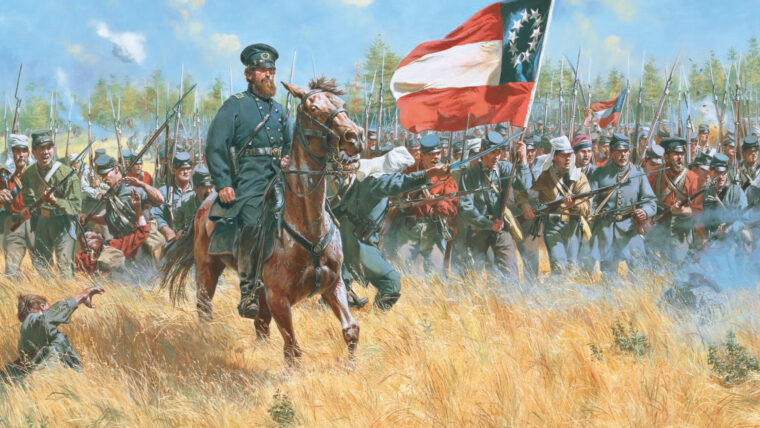
Ambrose Burnside
First Manassas: The Battle of Bull Run
By Earl EchelberryOn March 4, 1861, with war clouds threatening the land, Abraham Lincoln was inaugurated the 16th president of the United States. Read more

Ambrose Burnside
On March 4, 1861, with war clouds threatening the land, Abraham Lincoln was inaugurated the 16th president of the United States. Read more
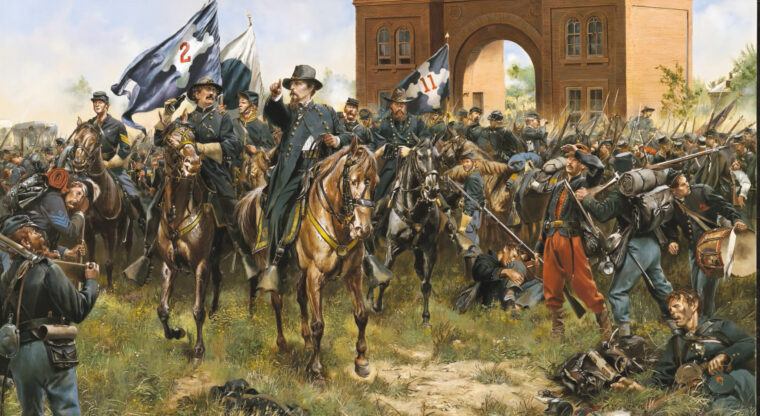
Ambrose Burnside
On East Cemetery Hill at Gettysburg National Military Park, an equestrian statue of Maj. Gen. Winfield Scott Hancock stands facing west toward the Evergreen Cemetery gatehouse. Read more
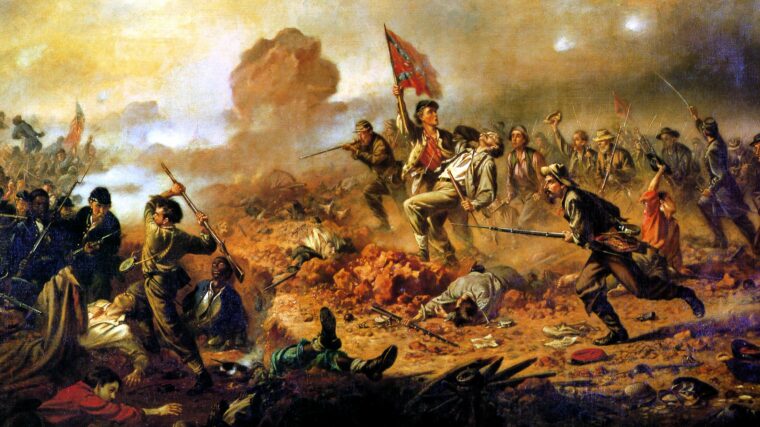
Ambrose Burnside
In the summer of 1864, after six weeks of virtually constant combat in the Wilderness area of northern Virginia, the Union and Confederate armies of Ulysses S. Read more
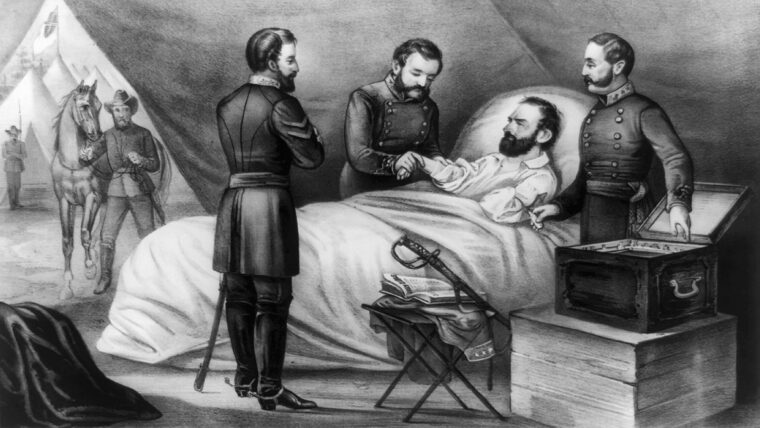
Ambrose Burnside
Following his greatest victory, at the Battle of Chancellorsville on May 2, 1863, Confederate Lt. Gen. Thomas J. Read more
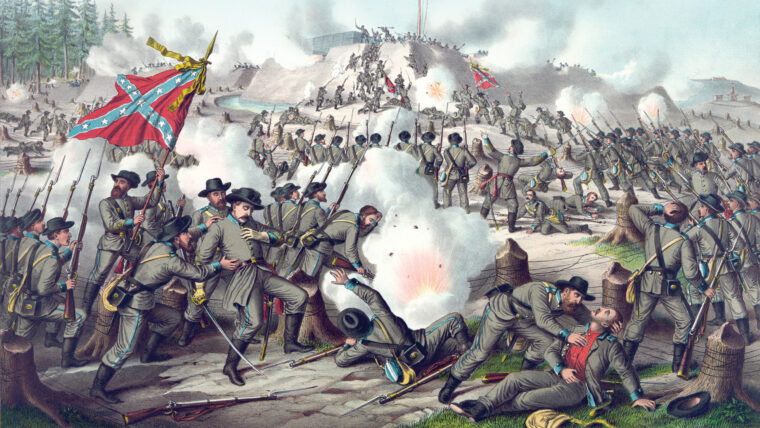
Ambrose Burnside
At midnight on November 13, 1863, two companies of the Palmetto (South Carolina) Sharpshooters Regiment led by Captain Alfred Foster slipped down to the south bank of the Tennessee River at Huff’s Ferry. Read more
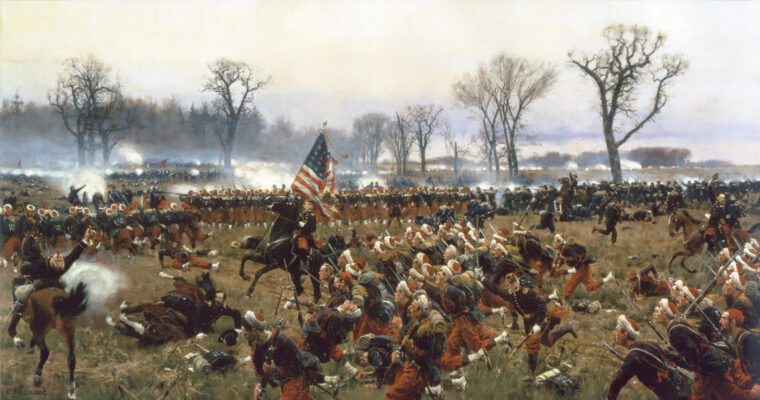
Ambrose Burnside
Word spread like wildfire through the camps of the Army of the Potomac during the second week of November 1862: “Little Mac” was out, “Old Burn” was in. Read more
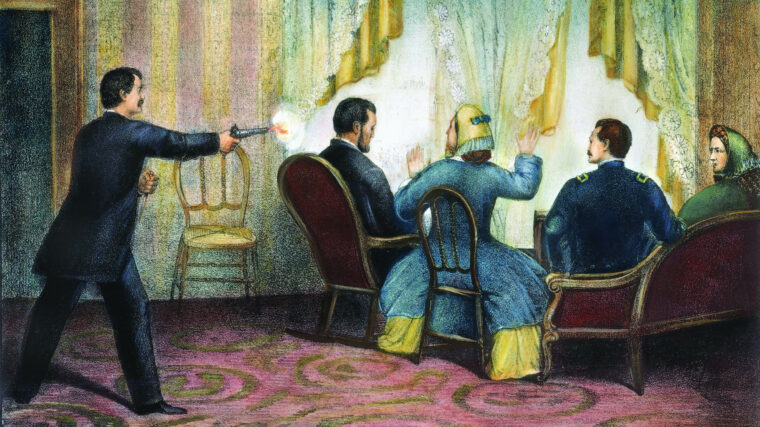
Ambrose Burnside
In the late hours of April 14, 1865, Secretary of War Edwin Stanton sat at a small table in the Petersen House across the street from Ford’s Theater in Washington, D.C. Read more
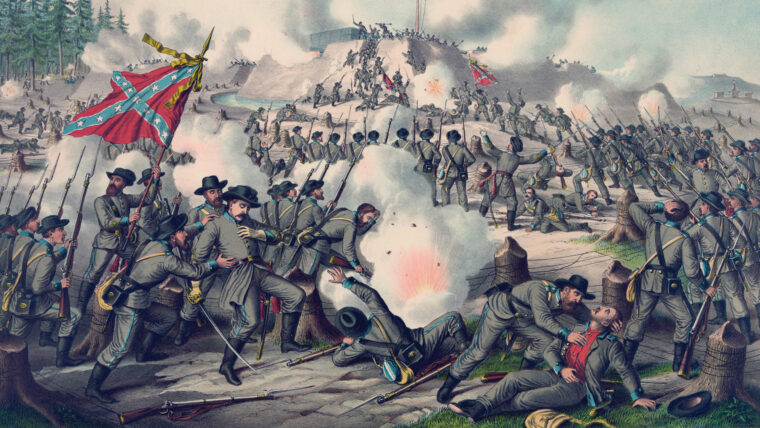
Ambrose Burnside
After the crushing Union defeat at the Battle of Fredericksburg on December 13, 1862, President Abraham Lincoln relieved Maj. Read more
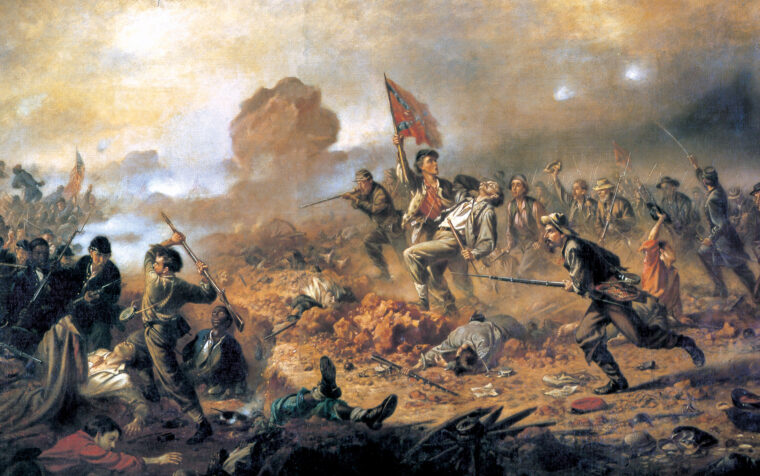
Ambrose Burnside
It was just after 3 am on Saturday, July 30, 1864. A month of relative quiet along a two-mile stretch of Union and Confederate trench lines immediately east of Petersburg, Virginia, was about to come to an explosive end. Read more

Ambrose Burnside
The year 1864 was shaping up to be a critical one in the American Civil War. During the previous year, Federal armies had gained control of the Mississippi River and consolidated their grip on Tennessee. Read more
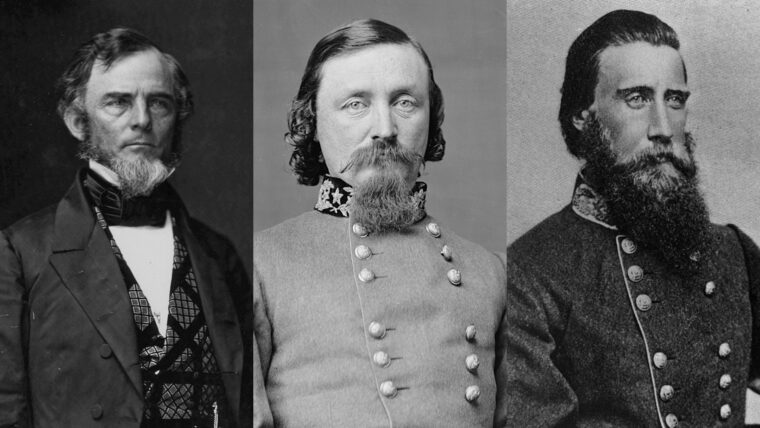
Ambrose Burnside
Confederate Maj. Gen. Gideon Pillow. After gaining ground trying to cut an escape path for the Confederates during the February 1862 siege of Fort Donelson by Union forces led Brig. Read more
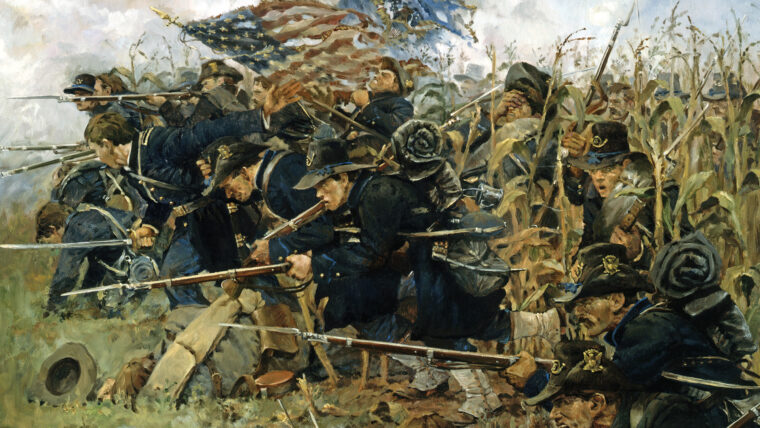
Ambrose Burnside
The White House was a somber place in the summer of 1862. The Civil War was in the midst of its second costly year, and the Union armies had yet to win a significant victory in the eastern theater. Read more
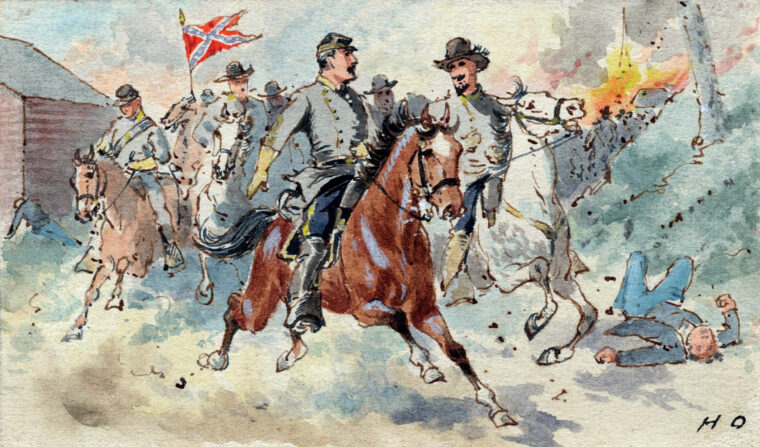
Ambrose Burnside
“It was a sad, sorrowful day,” recalled Confederate Major James McCreary, “and more tears of grief rolled over my weather beaten cheeks on this mournful occasion than have before for years.” Read more
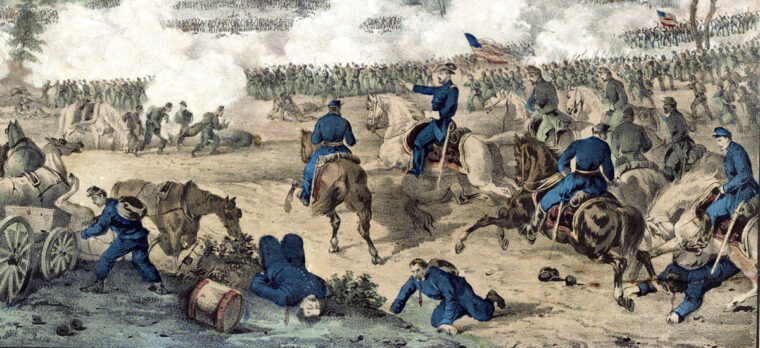
Ambrose Burnside
The year 1864 was shaping up to be a critical one in the three-year-long Civil War. During the previous year, Federal armies had gained control of the Mississippi River and consolidated their grip on Tennessee. Read more
Ambrose Burnside
Nothing in Ambrose Burnside’s pre-Civil War career indicated that he would be anything but a successful and energetic general. Read more
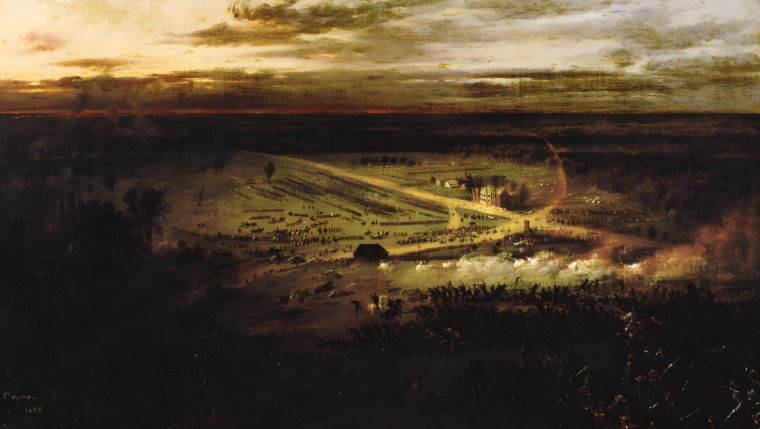
Ambrose Burnside
The city of New York provided more regiments than did many states during the Civil War, and the deeds of several of its regiments, such as the 9th New York “Hawkins’s Zouaves,” 39th New York “Garibaldi Guard,” and 42nd New York “Tammany Regiment” are well known. Read more
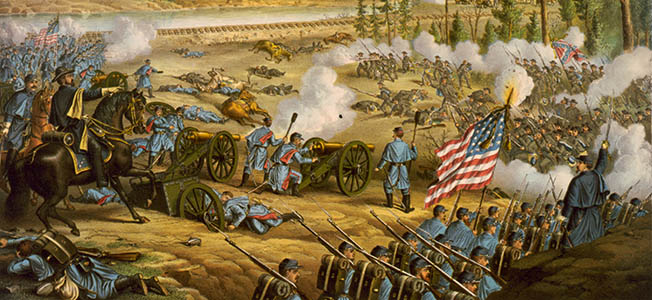
Ambrose Burnside
Confederate offensives into two border states, Maryland and Kentucky, formed the key highlights of the second half of 1862 for the Confederacy. Read more
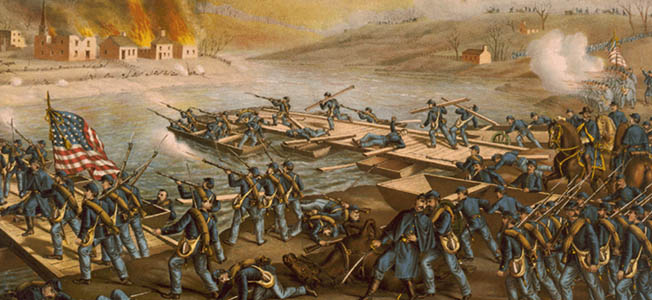
Ambrose Burnside
Union Maj. Gen. Ambrose Burnside was prone to dithering. The vanguard of his 120,000-strong Union Army had arrived in Falmouth on the north bank of the Rappahannock River opposite Fredericksburg on November 14, 1862. Read more
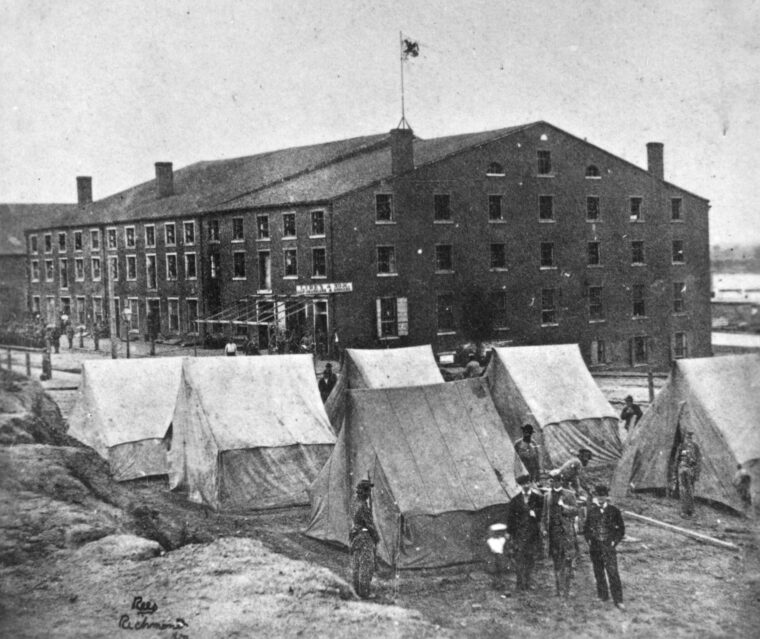
Ambrose Burnside
One of the primary reasons given for the Union defeat at the First Battle of Bull Run was the lack of adequate cavalry. Read more
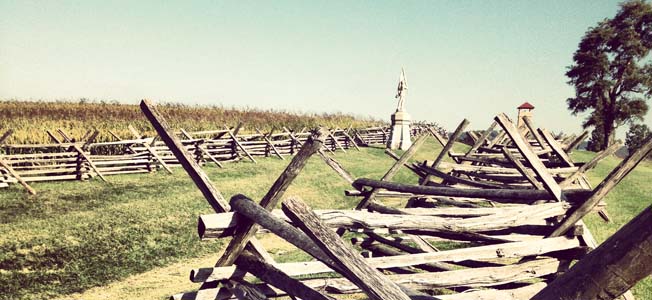
Ambrose Burnside
The harvest of death in the farm fields of western Maryland was a heavy one on September 17, 1862. Read more